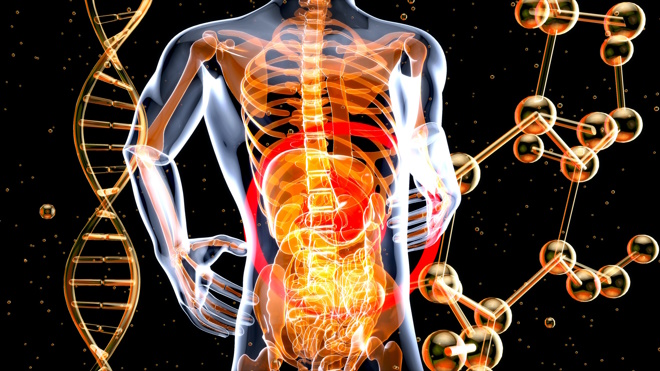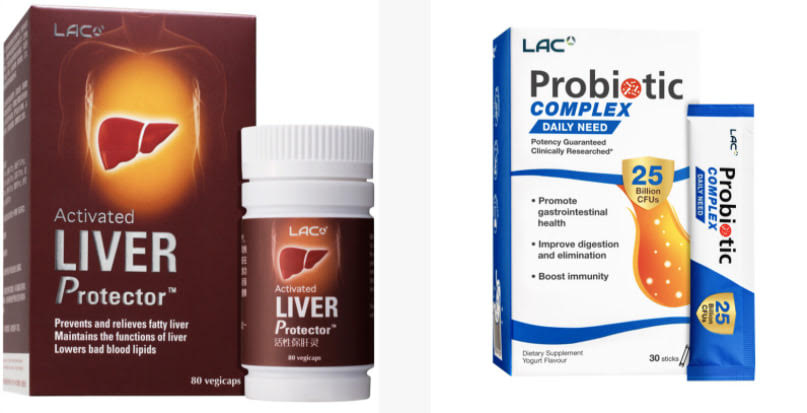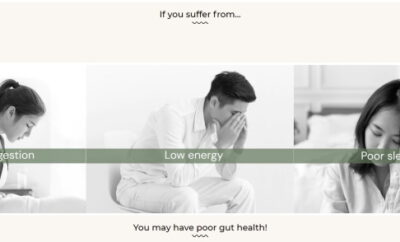
Health x Wellness
What is the relationship between our gut, liver and immune system?
The gut, liver, and immune system share a close and intricate relationship, working in harmony to maintain overall health and well-being.
The gut is often referred to as our “second brain,” and houses trillions of microorganisms known as the gut microbiota. This plays a crucial role in immune function.
Research has shown that a healthy gut microbiota promotes the development and maturation of immune cells, regulates the immune response, and helps protect against harmful pathogens.
Additionally, the gut microbiota communicates with our immune system influencing both immune cell activity and promoting immune tolerance.
The liver plays a significant role in removing toxins, pathogens, and dead cells from the bloodstream, thus preventing their circulation and potential harm to the body. Additionally, the liver produces immune proteins, such as complement factors and acute-phase proteins, which are crucial for immune function and response to infection. Furthermore, the liver regulates the production of cytokines, which are essential for the coordination of immune responses.
We discuss the gut microbiome, gut and liver health and Fatty Liver Disease with LAC’s Consultant Nutritionist, Miss Yen Yee.
the Active Age (AA): What is the gut microbiome?
Miss Yen Yee (YY): Our bodies harbour communities of bacteria and other microorganisms both inside and on our skin. These microorganisms, also known as microbes, play an important role in many of the body’s functions, influencing digestion, nutrient absorption, immune function, and even mental health.
The microbiome is made up of both beneficial and potentially harmful microbes. The majority are friendly and have a symbiotic relationship with the body, meaning both the microorganism and the body benefit. Some microbes, however, are pathogenic, meaning they can lead to disease and illness. In a healthy person, both types of microbes coexist and interact with each other. However, various factors can upset that balance, including infections, change in diet, and use of antibiotics. Such disturbances in the microbiome may make an individual more susceptible to disease and affect their digestive health.
Supplements that are marketed as “gut health” or “probiotic” supplements typically contain live bacteria that are beneficial for the gut microbiome. These supplements may contain a variety of different strains of bacteria, such as Lactobacillus or Bifidobacterium, which are commonly found in the gut and have beneficial effects.
AA: Why is gut health important?
YY: Gut health plays a crucial role beyond its fundamental function of food digestion. Actively caring for your gut health can alleviate the woes that come with ageing and unhealthy lifestyle habits.
As many as 10 percent of Singaporeans are suffering from Irritable Bowel Syndrome, a chronic issue that is a typical manifestation of poor gut health. What is more concerning is that while gut health is an important factor to maintain overall health, only 16% of Singaporeans are more likely to focus on consuming digestive health supplements.
Our gastrointestinal tract helps with many different bodily functions, including:
Digestion and Nutrient Absorption: The gut microbiome plays a key role in breaking down food and absorbing nutrients from the diet. A healthy gut microbiome can help improve digestion and prevent nutrient deficiencies.
Immune Function: According to UCLA Health, 70 percent of immune cells are present in the gut, making it the cornerstone of your immune system. It helps to defend against harmful bacteria and viruses, while also promoting the growth of beneficial bacteria that can enhance immune function.
Mental Health: The gut and the brain are connected through a complex network known as the gut-brain axis. Therefore, a healthy gut microbiome can help reduce the risk of depression, anxiety, and other mental health disorders.
Maintaining a healthy gut is crucial for overall health and well-being. This can be achieved through a balanced diet, regular exercise, stress management, and avoiding unhealthy habits like smoking and excessive alcohol consumption.
AA: How do you determine whether a person has good or bad gut health?

YY: Assessing whether a person has good or bad gut health involves evaluating several factors that contribute to digestive health.
Some ways to determine this would include:
- Symptoms to gauge the health of the gut. For example, digestive issues such as bloating, gas, constipation, diarrhoea, irregular bowel patterns and abdominal pain can be signs of poor gut health. However, these symptoms can also be caused by other conditions, so it’s important to rule out other underlying medical issues.
- Other ways include having healthcare professionals clinically evaluate your overall gut health, like taking a stool analysis to identify imbalances or dysbiosis in the gut microbiome, taking a breath test to measure the level of gases such as hydrogen and methane to indicate the presence of certain types of bacteria in the gut, or undergoing an endoscopy to identify any potential gut issues in the digestive tract.
AA: What is the relationship between a person’s gut health and their immune system?
YY: There is a strong relationship between a person’s gut health and their immune system. The gut is home to trillions of microorganisms, including beneficial, “friendly bacteria” that play a critical role in maintaining a healthy immune function. These bacteria help to train and support the immune system, producing compounds that help to fight off harmful pathogens and maintain a balanced immune response.
Additionally, the gut has its own lining, covered in mucus that helps to protect against harmful substances and prevent them from entering the body. This layer of protective mucus also contains immune cells that help to detect and respond to threats.
A healthy gut microbiota, which can be supported by a diverse and fiber-rich diet, prebiotics, probiotics, and other lifestyle factors, can help to promote immune resilience and protect against disease. Therefore, it’s important to maintain good gut health to support a healthy immune system.
AA: How does gut health affect weight loss?
YY: Gut health can play a role in weight loss in several ways:
- Metabolism: The gut microbiome plays a critical role in regulating metabolism, which is the process by which the body converts food into energy. Certain bacteria in the gut are able to extract more calories from food, which can lead to weight gain, while other bacteria strains can help to promote weight loss instead.
- Inflammation: Chronic inflammation in the gut, caused by poor gut health, can lead to metabolic disorders, which can make it more difficult to lose weight.
- Nutrient Absorption: A healthy gut lining is essential for proper nutrient absorption, and nutrient deficiencies can make it more difficult to lose weight.
Therefore, focusing on gut health through a balanced diet, probiotics, and prebiotics, as well as reducing stress and getting enough sleep, can all support weight loss efforts.
AA: Is there a connection between the gut and liver, from a nutritional perspective?
YY: The liver and the gut have a unique connection where one has the power to influence the other. The liver plays a vital role in regulating metabolism and detoxifying harmful substances, including toxins and medications. Nutrients and toxins absorbed by the gut are transported directly to the liver for processing.
Imbalances in the gut microbiome can lead to the production of harmful metabolites, such as endotoxins, which can damage liver cells and lead to inflammation and liver disease. A healthy gut microbiome, on the other hand, can produce beneficial metabolites that support liver function and protect against liver damage.
Keeping both vital organs healthy is about providing them with the right nutrients, along with supplements for the gut such as LAC Probiotic Complex, important in maintaining a healthy digestive tract and LAC Activated Liver Protector that helps in preventing and relieving fatty liver, promoting healthy liver functions including lowering bad cholesterol or blood lipid levels.

These supplements along with a balanced diet and a healthy lifestyle can maintain optimum health for the body.
AA: What do we need to know about fatty liver disease (FLD)? Can it be treated successfully?
YY: There are two types of fatty liver disease – non-alcoholic fatty liver disease (NAFLD) and alcoholic fatty liver disease (ARLD). NAFLD is more common and can be caused by factors such as obesity and high levels of blood sugar or lipid in the blood.
On the other hand, ARLD is caused by excessive alcohol consumption. In the early stages, both types of liver diseases may have little to no symptoms; but if left untreated, they may lead to inflammation and scarring of the liver, which can ultimately result in liver failure.
Fatty liver disease (FLD) can be treated successfully, especially if it is detected early. The most effective treatment depends on the underlying cause of the disease. The treatment for fatty liver disease typically involves making lifestyle changes, such as losing weight, exercising, and eating a healthy diet.
However, the best way is to take supplements that contain antioxidants and nutrients to help prevent or reduce the risk of developing FLD later on. LAC Activated Liver Protector is a blend of Traditional Chinese Medicinal herbs with key ingredients such as Hawthorn, White Peony Root, and Turmeric, that can prevent and relieve fatty liver, promote healthy liver functions and lower bad blood lipid levels.
AA: What are some steps we can take to improve both our gut and liver health?
YY: Actively caring for your gut health can alleviate the woes that come with ageing and unhealthy lifestyle habits. Making conscious, healthy lifestyle choices will definitely improve and maintain a healthy gut and liver for the long-term.

Some of these include:
- Having a nutritious, balanced diet rich in fiber, fruits, vegetables, and lean proteins can support gut and liver health. Avoid processed foods, sugar, and excessive alcohol consumption, which can be harmful to both organs.
- For those who are picky eaters, have dietary restrictions or a busy lifestyle, they can look at incorporating supplements in their diet with probiotic strains that can withstand gastric acid to reach your intestines such as LAC Probiotic Complex which contains 12 strains of Lactobacillus and Bifidobacterium probiotics, the “friendly bacteria” that are important to maintain a healthy digestive tract. Another suggestion is the LAC Activated Liver Protector, which contains a blend of Traditional Chinese Medicinal herbs that can prevent and relieve fatty liver, and promote healthy liver functions including lowering bad cholesterol or blood lipid levels.
Photos by Dan Gold on Unsplash, by julien Tromeur on Unsplash









